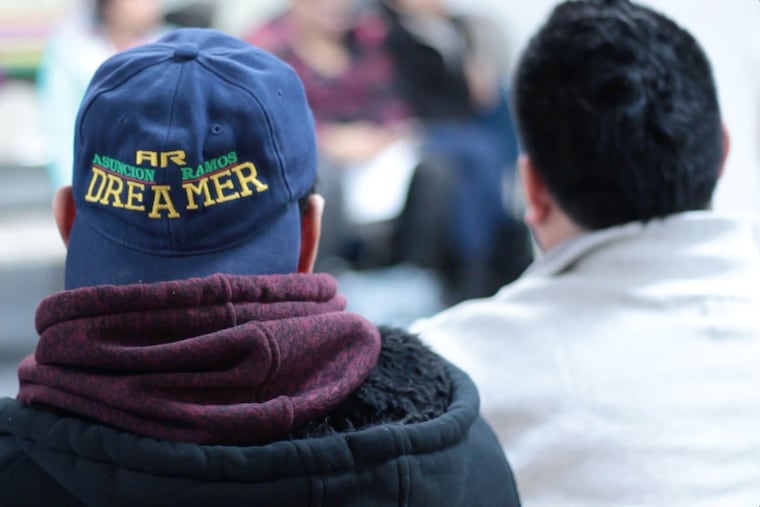‘Expanding Sanctuary’ documents Latinx role in Philly’s campaign to end PARS access
It was 'fate' for the filmmaker to witness the end of a more then 10-year-old agreement that allowed ICE officers access to the Police Department’s Preliminary Arraignment Reporting System.

Camera in hand, Kristal Sotomayor found herself in the streets of Philadelphia capturing what came to be a historic moment: the end of a more than 10-year-old agreement that allowed Immigration and Customs Enforcement (ICE) officers access to the Police Department’s Preliminary Arraignment Reporting System (PARS).
Out of the possible angles, she focused her lens on a Latinx grassroots campaign movement that included the South Philly advocacy organization Juntos, and the group’s part in informing and organizing Philly’s Latino immigrant community for the 2018 protests.
As the only filmmaker following the organization’s efforts, the Bryn Mawr College graduate decided to humanize the narrative around Latino immigrants by showcasing their experience.
A year later, the 23-year-old is finishing the 30-minute documentary called Expanding Sanctuary, which she started through Scribe’s Film Scholar Fellowship Program in September 2017. Her crowdfunding to help pay for the end of the editing process ends Aug. 14.
We spoke to the American filmmaker of Peruvian heritage about the project and the efforts for social change.
When did you decide that you were going to document this social movement?
I didn’t realize that this was going to be the focal point of the documentary until I started living it. I wanted to be in a community I felt comfortable in and started [shadowing] Juntos without knowing what the outcome would be. I went to the first PARS campaign meeting. Met many enthusiastic people. I think it was a little bit of fate, that I was interested in immigration — a factor that has always conditioned my family — at a moment when Philadelphia’s immigrant community was taking a historic stand.
What’s your take on the work that Juntos did?
Juntos organized this campaign at the same time that family detentions were in the public sphere on a national level. I think that they were really smart at translating the national conversation into a local perspective. They used live social media events and artwork to heal and protest, which helped inform the people on how policing systems and policies affect immigrant communities in particular and created a movement toward protecting the community.
Why did you name the documentary “Expanding Sanctuary”?
Philadelphia is already a sanctuary city. And during a conversation, Miguel Andrade from Juntos mentioned some of the words and phrases that community members had used during a brainstorming session. And, so, the name came as input from the community and its commitment to expand the definition of sanctuary protection, ending an agreement that allowed ICE to have access to information with PARS.
What will viewers experience with this project?
Well, this project is about a community that comes together, in resistance and resilience, to make social change. Most of the time, documentary narratives around Latinx immigration issues portray a defeated and powerless community. I’m glad to have captured how people push for the changes they want to see happen — and win. It’s a powerful and empowering piece that shows what detainment and deportation systems look like in the lives of people, and how these take action to change that.
What did you learn about immigration and sanctuary as you documented this process?
I understand better why my extended family isn’t here, why I have met and seen my grandparents and cousins only twice in my life. I learned about how lucky we are to have had the opportunity to obtain visas, [be] born and raised in the U.S., and how expensive it is to travel to Peru. It was enlightening to learn about how the immigration and policing systems affect communities of color in different ways.